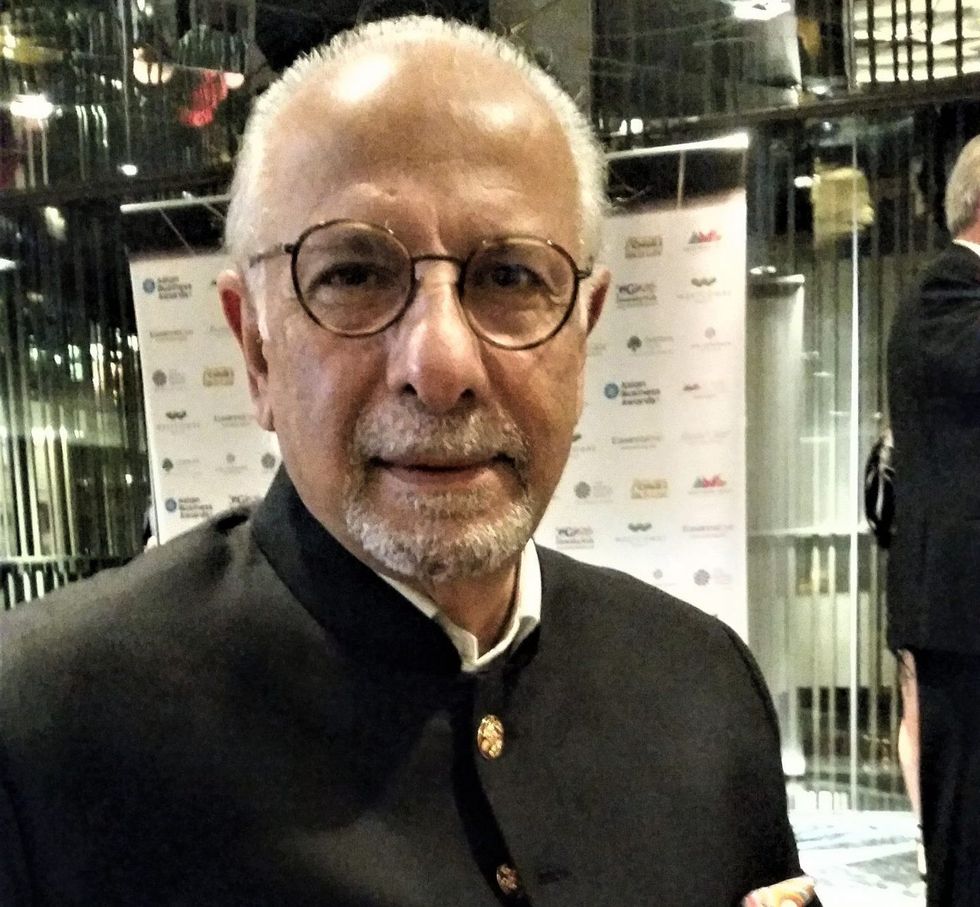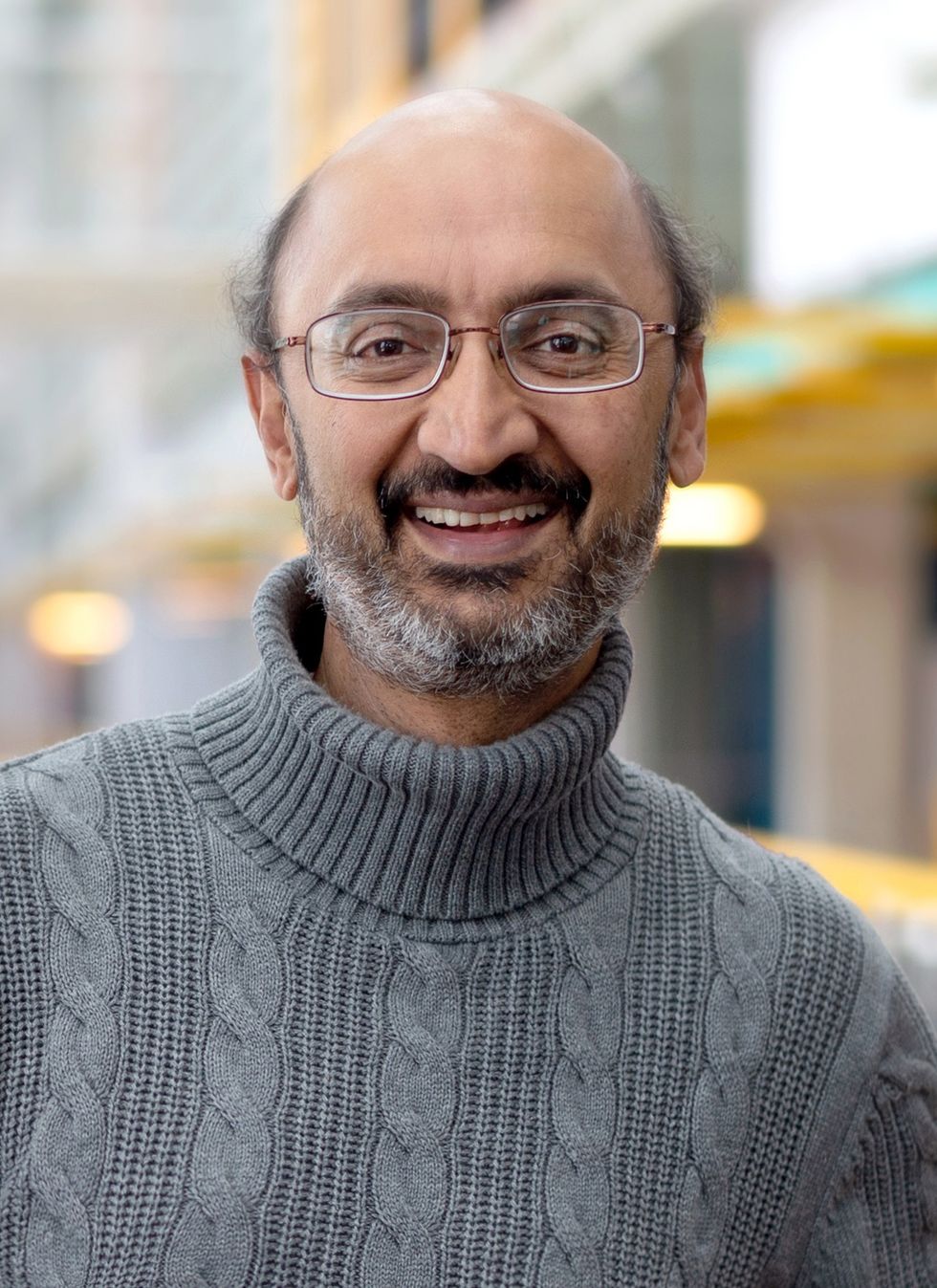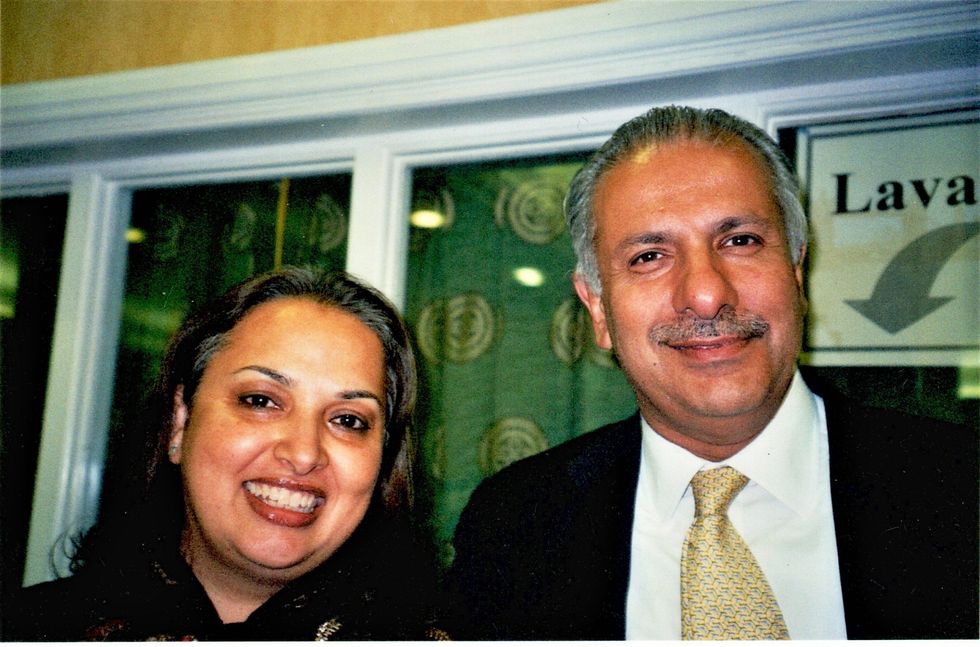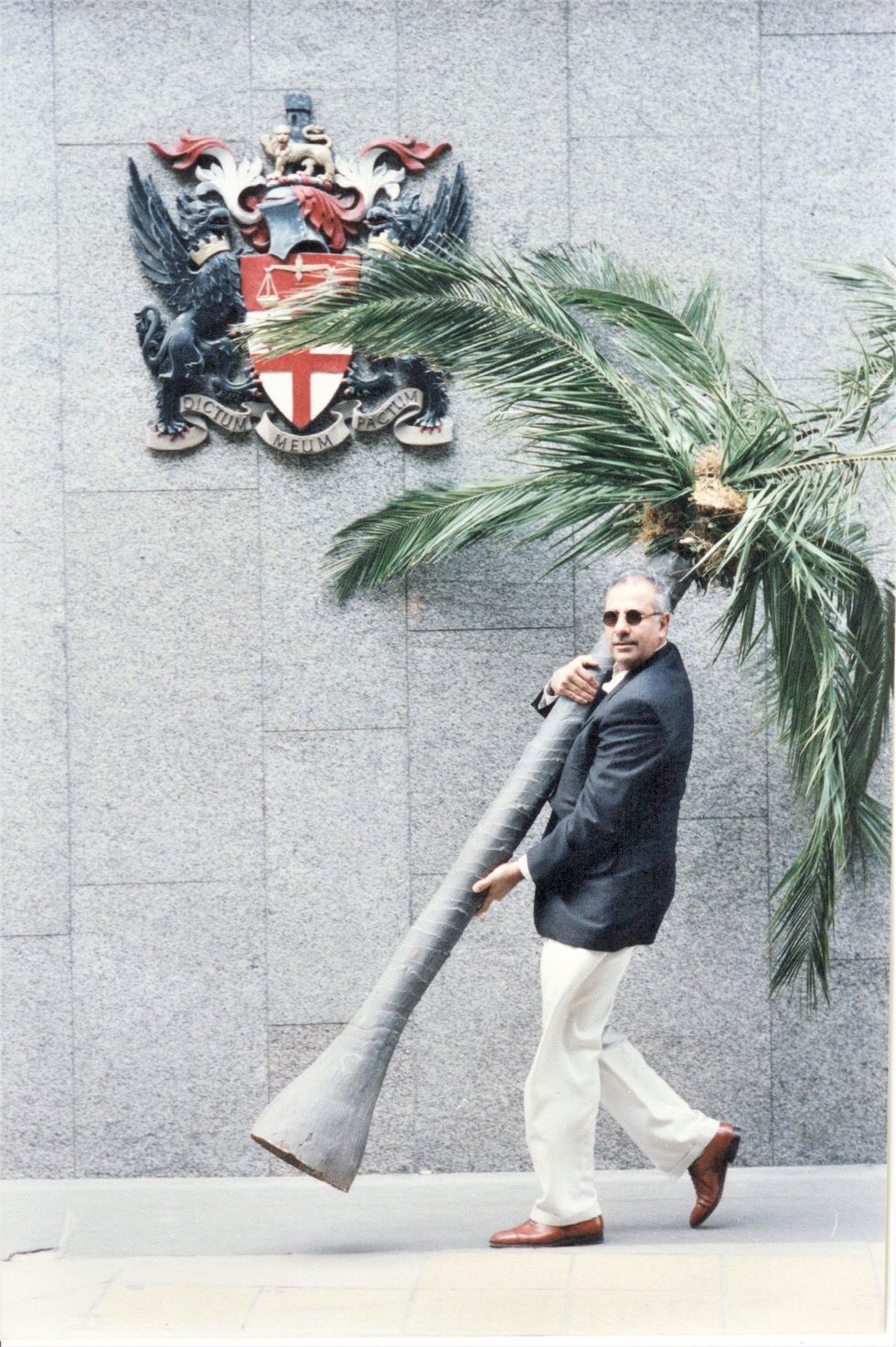Entrepreneur set to become rare Fitzwilliam 'Benefactor Fellow'
DINESH DHAMIJA, the entrepreneur who made his name by setting up the online travel firm ebookers, is hoping to accelerate the development of computer sciences at Fitzwilliam College, Cambridge, with a million-pound gift.
Dhamija was himself a student at Fitzwilliam from 1971-74, when he did Oriental Studies in Part I followed by Law for Part II. He hopes his old college will be able to take on perhaps an extra 30 “very bright” students – 27 as undergraduates and the rest at postgraduate level.
“In 10 years, that’s 300 students,” Dhamija told Eastern Eye. “Hopefully, brilliant. Some of them will achieve something in life.”

Dhamija certainly revolutionised travel by setting up ebookers in 1999. For the first time, people could book holidays from the comfort of their homes at any time of day or night without having to go to high street travel agencies.
He sold ebookers for $471 million (£247m) in 2004 and is now involved in a number of other fields, including solar energy. In 2004, Dhamija was named Man of the Year in the GG2 Leadership Awards.
Now, as a senior figure in the business world, aged 71, he has a suggestion for what might help the British economy: “The best thing for the UK would be to get 10,000 Indian software engineers to come here.”
Dhamija recalled that prior to 2007, he had given Fitzwilliam “small” sums.
“Then, one day I decided I’ll give them £100,000. So that came to about £130,000 in total. And then I thought, ‘Hang on. Why don’t I give them another £870,000 and make it £1 million?’”
But Dhamija “didn’t want a court or a house or a staircase or something like that” (named after him).
He was inspired by sitting at lunch next to a fellow of Fitzwilliam and a computer genius, Srinivasan Keshav, who is “the Robert Sansom professor of computer science” at Cambridge. He spends 70 hours a year in giving personal supervisions to students at Fitzwilliam in one-on-one or one-on-two sessions.

Dhamija told Eastern Eye how a chat with Keshav made him decide he would fund three fellowships.
“I said, ‘How many people do computer science here?’ He (Keshav) replied, ‘Well, I teach nine people.’ I said, ‘What, three per year?’ He said, ‘Yeah, we only take three people.’ So I said, ‘You’re saying no one applies to Cambridge – to Fitzwilliam – for computer science? I mean, this is an up-and-coming field.’ To which he said, ‘60 people apply with three A stars, and above, like four stars or five stars. We can take only three.’
“So I said, ‘That’s ridiculous. Such a lot of brainpower going to waste.’ I said, ‘If I give you another fellowship?’ He said, ‘Then I will take in three more per year.’”
Keshav also told Dhamija he was working on “block chain”, a system of recording information in a way that makes it difficult or impossible to change, hack, or cheat the system. Keshav said he wasn’t using “Python – no, no, no”, but OCaml (a general-purpose, multi-paradigm programming language).
“You write the language and it’s got an algorithm, so that if you make a mistake, you can’t go forward.”
Afterward, Dhamija sought further guidance from the astronomer royal, Lord Martin Rees, who succeeded Amartya Sen as master of Trinity College, Cambridge.
Dhamija then did a back of the envelope calculation for Eastern Eye on the number of additional students Fitzwilliam could take if he funded the three fellowships: “So nine + nine + nine, makes 27 undergraduates plus postgraduates. Let’s say 30. That’s 300 in 10 years. Can you imagine getting supervision from these fantastic guys (like Keshav)? Honestly, these guys are from another world.”
According to the announcement from Fitzwilliam, Dhamija’s gift will “permanently endow three Fellowships in his name at the college”.
It added: “The Dinesh Dhamija Fellowships are designed to increase the college’s capacity in teaching and research across disciplines of applied engineering and science that help drive the radical technological development and innovation that is changing the world today.
“The gift will support three university teaching officers in eligible subjects as diverse as computer science, applied mathematics and the University of Cambridge’s new design tripos which launches in 2024.
“This will enable academics working on cutting-edge research and in new fields to make the most of the college membership at Fitzwilliam and benefit the wider college community.”

In a statement, Dhamija said: “The future of tomorrow will transform the world in ways we can’t imagine. I went into using the internet for travel sales in 1996. I founded ebookers.com in 1999 after a visit to San Francisco, when I realised its transformational potential.
“The increasing rate of change in the world makes it imperative that ‘disruption’ is understood, grappled with, and grasped. This gift will enable Fitzwilliam to do this in cutting-edge subject areas such as computer science and the new design tripos. I am thrilled to be helping the college with its contemporary academic programme.”
The master of Fitzwilliam, Baroness Sally Morgan, said: “We are delighted to receive this landmark gift to further strengthen the college’s commitment to its academic excellence.
These Fellowships, focused on the applied sciences and engineering, will support academics at the heart of Fitzwilliam College, and will make a real difference in ensuring the college is well-positioned to meet the demands of a rapidly changing world.”
And Peter O’Connor, development director at Fitzwilliam, added: “Dinesh has spent his life being at the vanguard of change. This wonderful gift is a testament to his vision and that spirit of embracing the future. It is a true example of taking a desire to make sense of the complicated contemporary world in which we live and acting upon this in a bold way. The college thanks Dinesh for this wonderful benefaction.”

Dhamija will attend a function on March 2 when he will be made a “benefactor fellow” of Fitzwilliam, which will be only the fifth time this will have happened in the history of the college – “that’s a big deal for me”.
Cambridge University has asked Dhamija to a separate event on April 11, when he and his wife Tina will be invited to join its “Guild of benefactors”. There are 300 individuals and institutions on the guild, among them Yusuf Hamied (boss of Indian pharma giant Cipla) and his wife Farida; the government of India; and Dhruv Sawhney, managing director of Triveni Turbines in India, and his wife Rati.
Those attending the dinner in April will be shown the Stephen Hawking Archives, the Ray Dolby Centre for physics, and the new medical campus.
Dhamija was born on March 28, 1950, in Australia, where his father, Jagan Nath Dhamija, was a senior diplomat in the Indian mission. He attended Emmanuel College, Cambridge, which was also the case with his younger son, Sumant.
While an undergraduate at Fitzwilliam, Dhamija played tennis and golf for the university, but unlike his father, who got into Wimbledon, he didn’t get a Blue.
In recent years, Dhamija has raised money for his old college. “I was on the fundraising board for Fitzwilliam when (former chancellor) Norman Lamont was the chairman. (Liberal Democrat) Vince Cable was at Fitzwilliam, too. We raised £20m and called it a day in 2019.”
Dhamija said he had told a few friends about his impending fellowship, among them Lord Jitesh Gadhia, who went up to Fitzwilliam in 1988 to read economics.
Although he was too modest to say so, in 10 years, he could imagine Fitzwilliam letting loose 300 budding Dhamijas on an unsuspecting world.



















